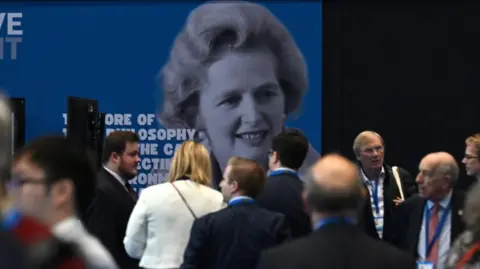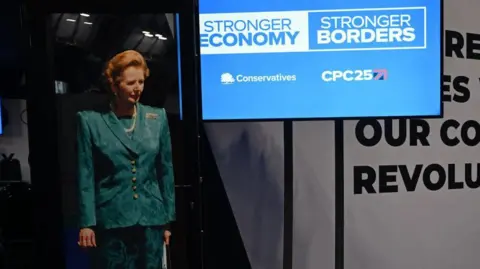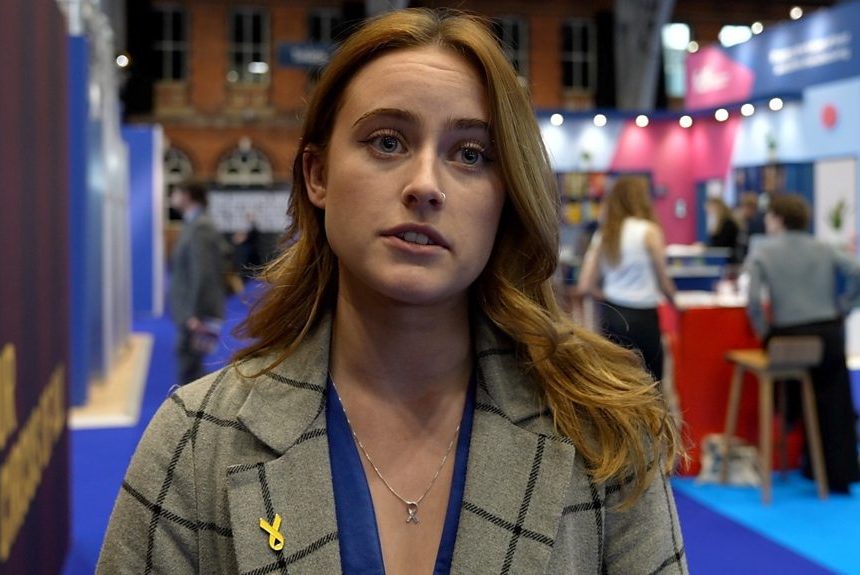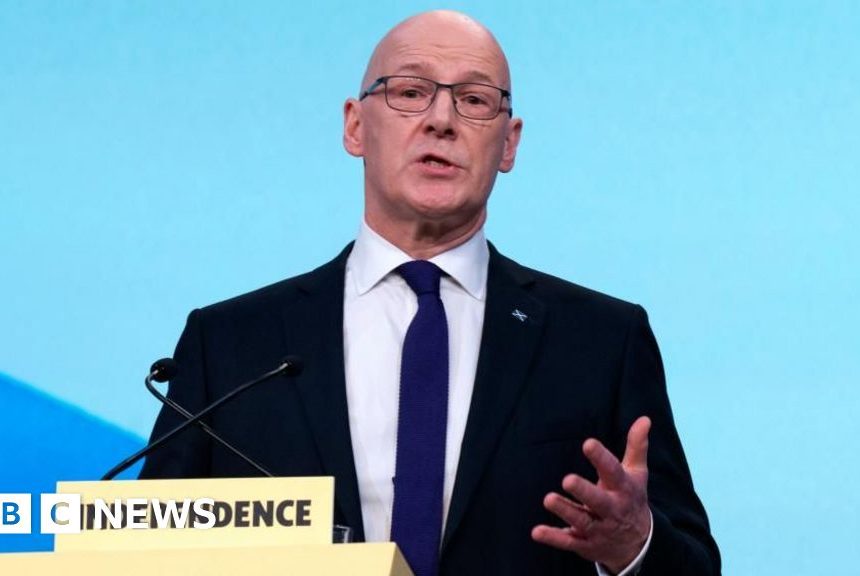Paul SeddonPolitical reporter, Conservative Party Conference, Manchester
 Getty Images
Getty ImagesIt is far from unusual to see tributes to Margaret Thatcher at Conservative party conferences.
But the ghost of the Iron Lady hangs particularly heavily at this year’s annual gathering in Manchester, as activists celebrate 100 years since her birth in 1925.
Along with the customary cardboard cut-outs and decorative gift mugs, a special exhibition stand is displaying a selection of the former Conservative prime minister’s most famous outfits from her 11 years in office.
Delegates can have their photo taken for a Thatcher mosaic projected on a wall, whilst a cocktail bar has been booked for a “Maggie’s 100th” party, with a live DJ ready to blast out “everyone’s favourite disco hits”.
That the party faithful would turn to their most successful leader at this particular point in time is not surprising, even if outsiders might question the party’s continued fascination with a leader it ejected from office more than 30 years ago.
Kemi Badenoch, who is preparing to mark her own one-year anniversary as Tory leader next month, is grappling with how to revive the Tories after their election drubbing last year and subsequent slump in the polls.
She has reportedly turned to Mrs T’s legacy herself for inspiration, reading a book about her predecessor’s early years in power.
But the party has also been debating whether the Thatcherite era holds any lessons for Badenoch, as she faces the task of restoring her party’s fortunes.
‘Lanyard classes’
Robert Colvile, who co-authored the Tories’ 2019 election manifesto and now runs the Centre for Policy Studies think tank set up by Thatcher in the mid-1970s, says Badenoch today is facing a different economic backdrop.
But speaking at a fringe event to mark the anniversary, he suggested she could draw from Thatcher when it comes to identifying the party’s political targets.
Whilst the former PM waged war with unions and state-backed industry, he said the Tories today should look to rein in the “lanyard classes” running government bodies “constraining the growth of enterprise”.
John Redwood, a former Tory MP who once headed up Thatcher’s policy unit in Downing Street, said the British energy industry could provide a similar cause for the party’s activists to rally behind.
The sector, he added, had become “like a nationalised industry” due to the scale of public subsidies and “bans and blocks” to enforce net-zero targets.
 Getty Images
Getty ImagesConservative MP Esther McVey told party members that Thatcher would be “spinning in her grave” at GB Energy, the new company set up by Labour to invest in green energy projects.
McVey also argued that the party could take a leaf out of Thatcher’s book when it comes to the task of rebuilding its reputation as a competent custodian of the British economy.
It is perhaps the key message the party wants to get across this week, as it seeks to present Nigel Farage’s spending plans as a threat to the public finance.
McVey, a former work and pensions secretary, said Reform UK’s promise to scrap the two-child benefit cap, a policy backed by the Lib Dems and also under consideration by Labour, could leave the Tories as the only main party pushing to keep the limit in place.
“The economy is where the Conservatives are going to get their breakthrough,” she added. “That is, I think, going to be our separation, our USP.”
Redwood pointed out that Thatcher also faced an electoral challenge from a new party, in the shape of the SDP, which polled as high as 50% in the 1980s as part of an alliance with the Liberals.
He added that the Tories didn’t “spend our time talking about or worrying about the social democrats,” instead focusing on “being Conservatives”.
As the governing party at the time, he added, it was “incumbent on us” to show the party could deliver its policy programme.
If Badenoch can repeat the trick in opposition, it could decide whether she can lead her party back into government.



